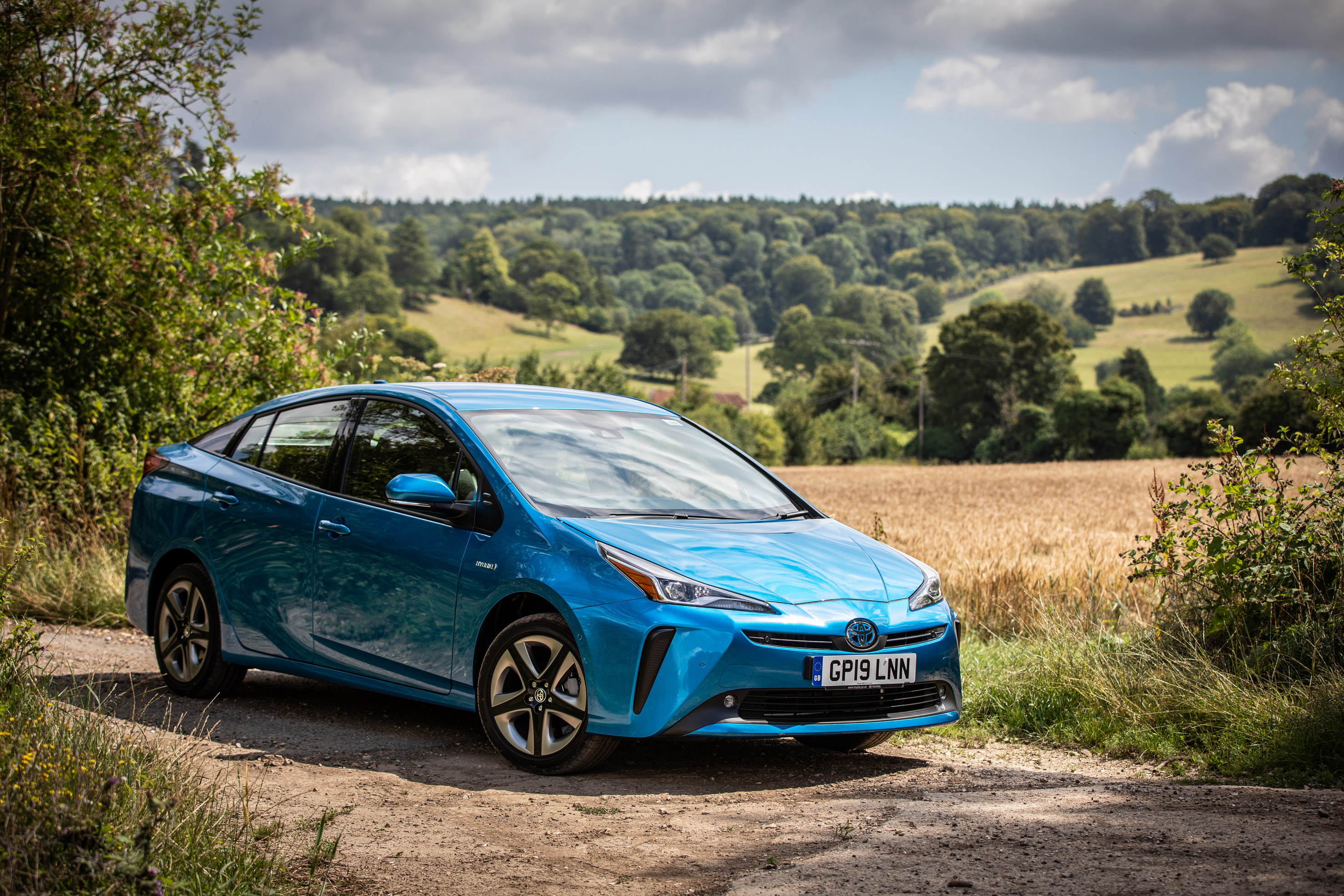 Chris Adamson gives his verdict on this latest hybrid Toyota …
Chris Adamson gives his verdict on this latest hybrid Toyota …
(Photos – Toyota GB)
Hybrid pioneers Toyota started the drive towards self-charging multi-power cars with their leading edge Prius. Now, over 20 years later, everyone seems to have a hybrid or full electric model on their fleet but Prius is still the one they have to be matched against.
While they have been developing hydrogen fuel cell technology as well as full battery power, Toyota hasn’t overlooked the car that started it all and in their latest generation Prius it has a vehicle that still takes some beating.
While it was many things, the first generation Prius could never have been called pretty, its function taking precedence over form and, while the latest fourth generation Prius isn’t going to win any beauty contest, there is a slightly more dynamic quality to the panel work especially around the front, which has to provide character without a grille.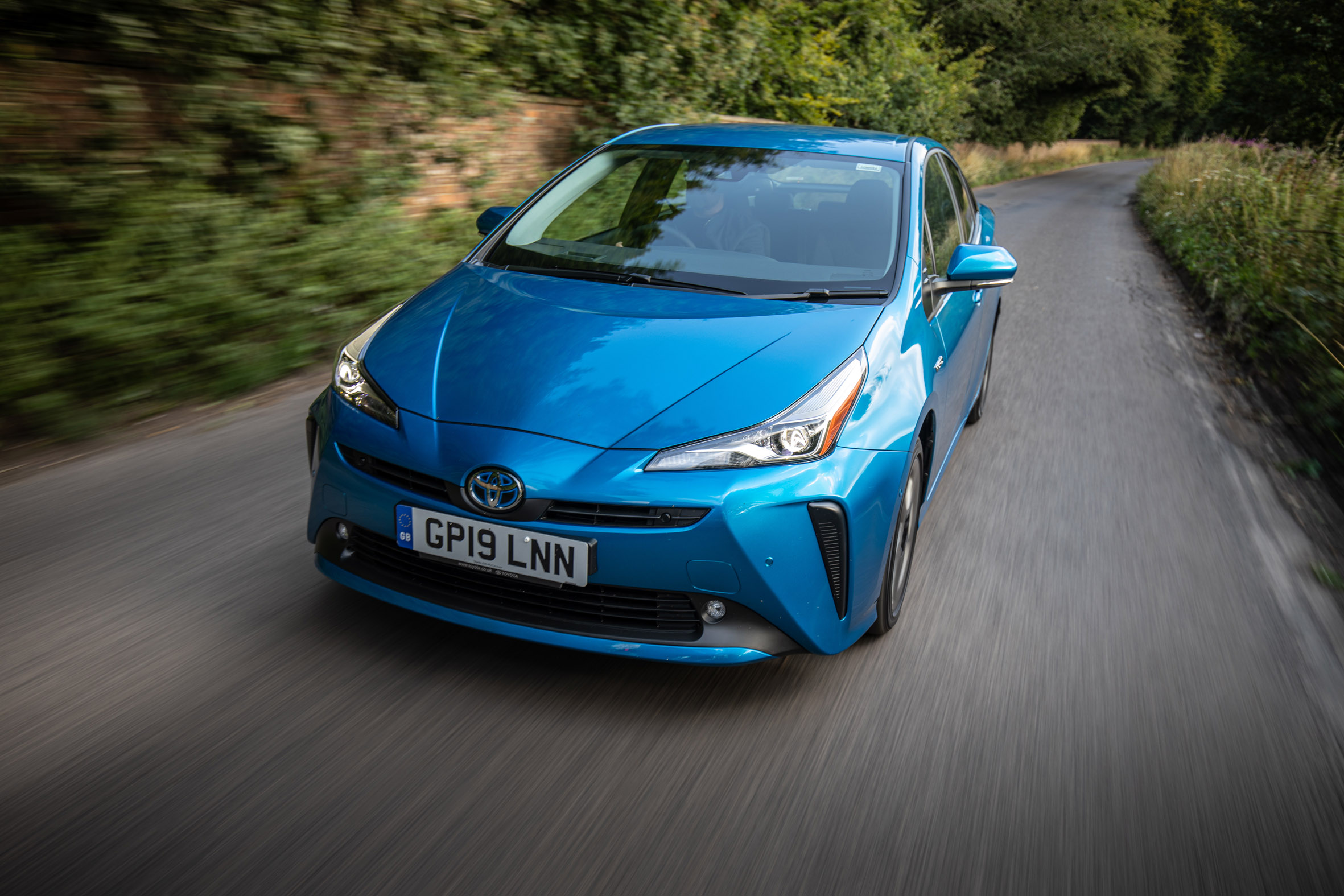 The front features a re-profiled and more aggressive bumper with slimmer bi-LED headlights, while at the rear, new combination taillights emphasis the horizontal lines and give the fastback a wider stance.
The front features a re-profiled and more aggressive bumper with slimmer bi-LED headlights, while at the rear, new combination taillights emphasis the horizontal lines and give the fastback a wider stance.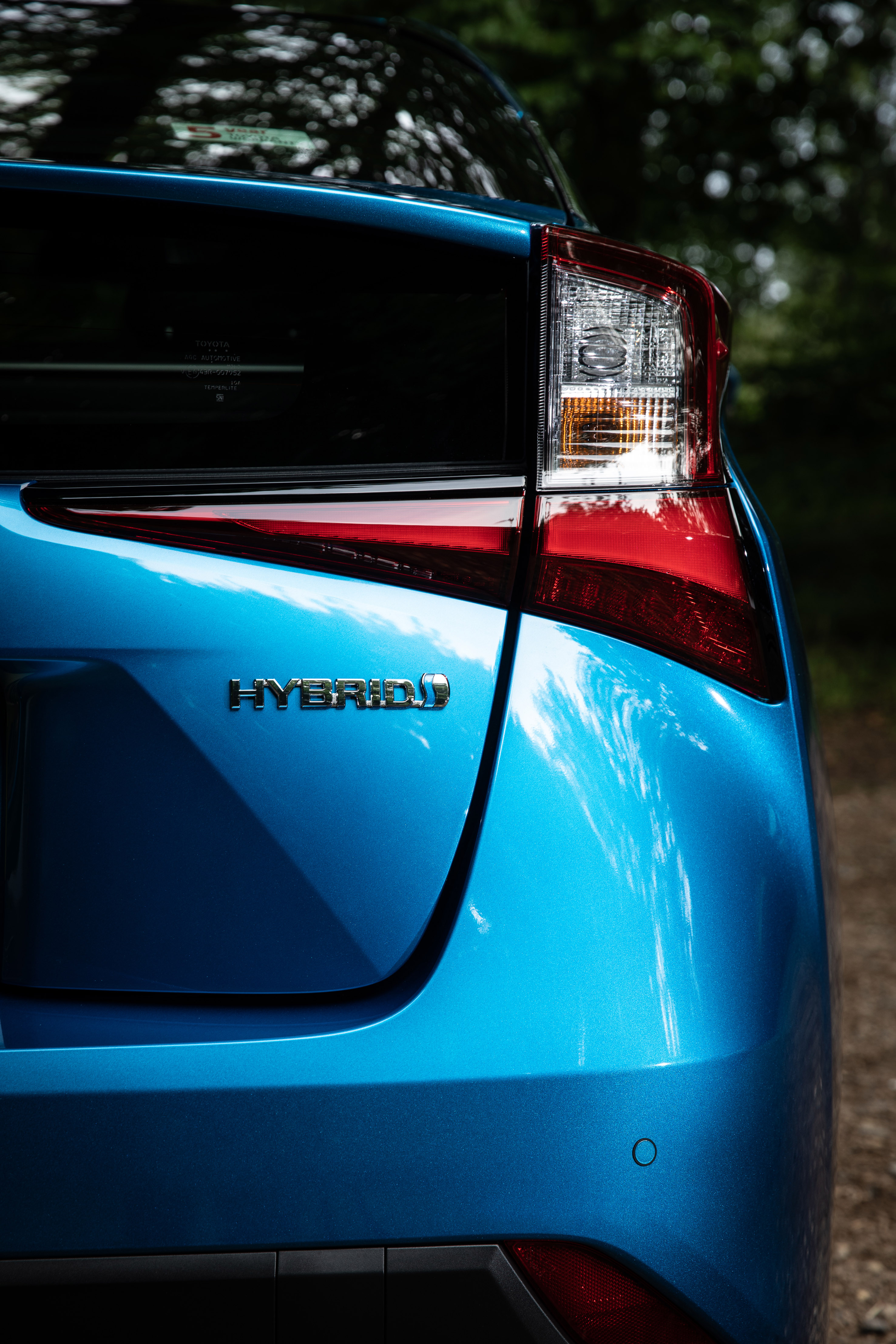
Under the skin the latest Prius uses a new global Toyota platform which allows the car to sit lower on the road, reducing its sense of bulk.
As well as getting better looking, the Prius has also got bigger; the latest model is a more accommodating vehicle offering plenty of passenger accommodation in a clean if not entirely luxurious or inspiring cabin.
I have to admit that the Prius dashboard was never a great favourite of mine and it still isn’t, the insistence on throwing a lot of technology at you can be distracting and the miniature drive selection lever is beginning to look a little dated.
But everything functions well and cossets the driver, especially the higher quality upholstery for the re-designed front seats, and there has been some attempt to declutter the centre console and use the in-vogue piano black trimmings which offers a more luxurious feel but only serves to darken an already drab cabin.
For those who like their technology, Toyota has given its Touch 2 multi-media control system a faster response through the seven-inch screen and what they describe as a more intuitive operations. I found the satellite navigation operation (standard on the Business Edition Plus as tested) very quick to get used to, especially the useful zoom-in function, while the heads-up display (colour on this version) is a great feature.
Another boost for those who like their portable technology is a larger Qi wireless charging tray in the centre console so it will now take the latest generation of larger smart phones.
As you would expect from a model that is designated the Business Edition Plus this example is overflowing with safety and convenience technology such as: a Pre-Collision System, Adaptive Cruise Control, Lane Departure Alert, Automatic High Beam, Blind Spot Mirrors, Rear Cross Traffic Alert, automatic wipers, smart entry, park assist and a JBL sound system.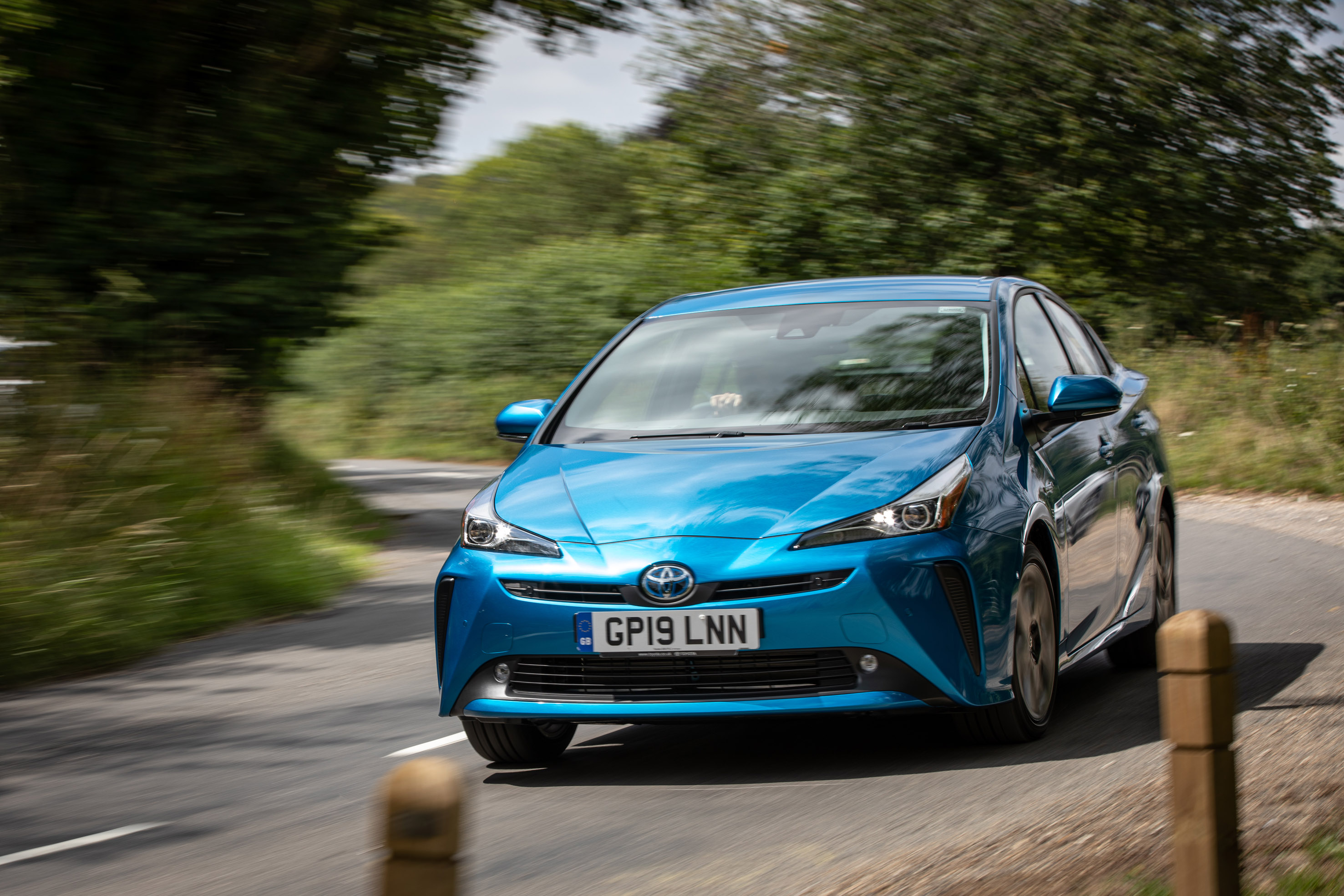
On the Road
While there are external and internal updates for the latest Prius there is also one new mechanical addition for 2019 – intelligent all-wheel drive which comes as an option on the Prius Business Edition Plus model.
The automatic system uses an additional, independent 5.3kW rear electric motor to automatically provide rear-wheel drive when pulling away at speeds up to 6 mph or when low-grip conditions are detected between 6 mph and 44 mph.
Being compact and lightweight (no driveshaft and no centre differential) Toyota says it has minimal impact on fuel efficiency (around two mpg) emissions (up three g/km) or load space (there is a loss of 45 litres or 1.59 cu.ft in the boot but it is still over 400 litres or 14.13 cu.ft with the seats up and over 1,500 litres or 52.97 cu.ft with them reclined while keeping a flat floor).
In operation you are hard-pressed to tell there is anything different on this model. On the mainly dry surfaces I was using the Prius the system was not called upon so it’s going to be more a peace of mind factor and only really comes into its own in the winter.
However I did venture onto some loose gravel in a car park and it did feel reassured in parking and driving off without scrabbling for grip so perhaps there is something to be said for it.
This is accompanied by a passable, if unspectacular, steering and suspension set-up. The electric powered assisted rack and pinion steering has a light touch which I could have done with firming up at higher speeds, but for everyday motoring is nicely balanced with the car’s performance.
Much the same can be said for the MacPherson strut front and double wishbone rear suspension that doesn’t have to cope with high performance operation so offers a comfortable if subdued ride quality.
Unchanged on the latest Prius is the 1.8 litre four cylinder 16 value DOHC petrol engine with dual VVTi intelligent variable value timing, that works in conjunction a compact electric permanent magnet, synchronous electric motor powered by a 28 module high voltage nickel-metal hydride battery.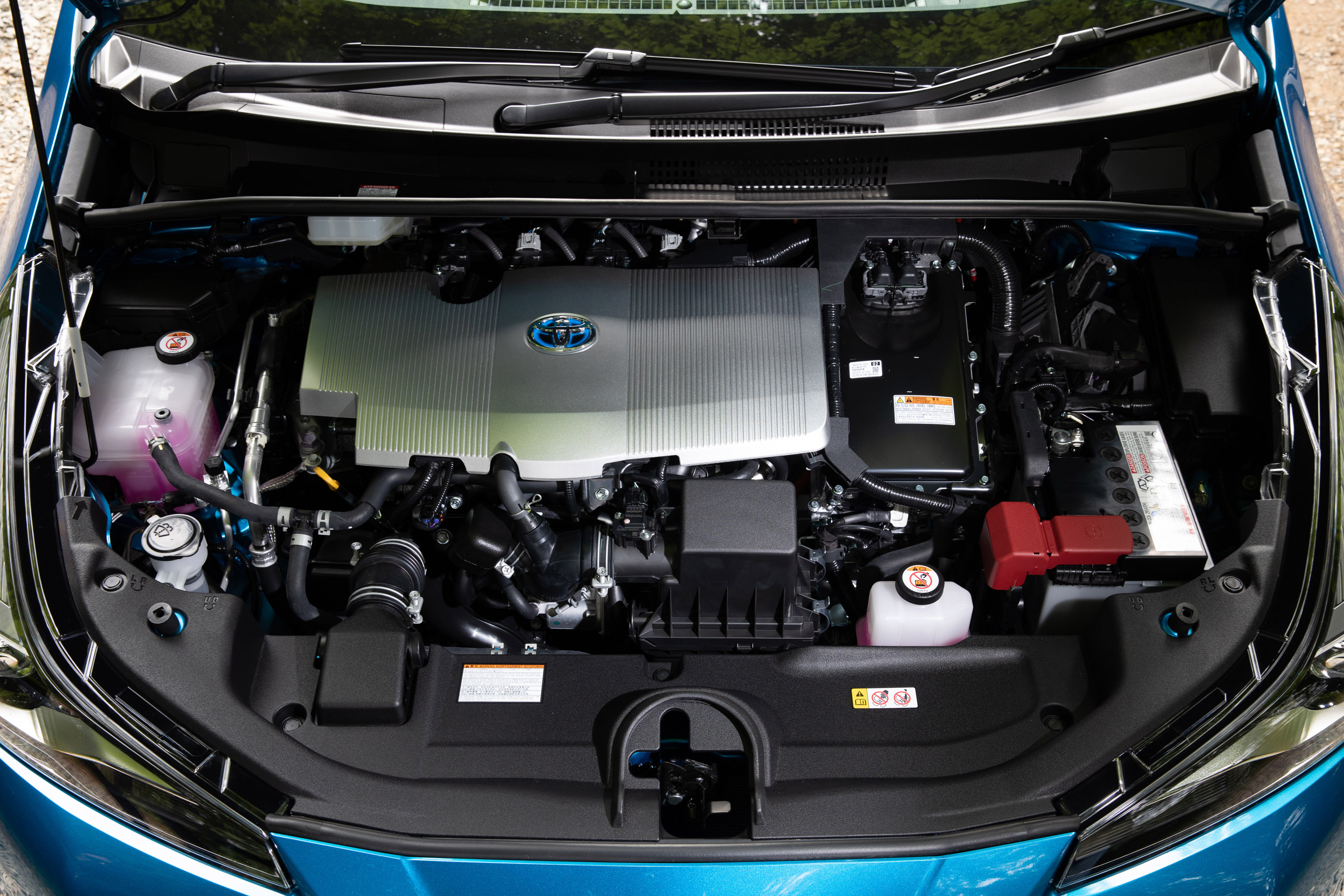
Toyota has taken the opportunity to install a more rigid accelerator to offer extra response and there seems to be plenty of power on tap the moment you apply the throttle in battery mode.
However this is never going to be a sportscar as its going to take almost 11 seconds to reach 62 mph with a top speed limited to under 100 mph, and if you are trying to maximise battery life you aren’t going to be thrashing this car around the roads.
Given judicious use of the accelerator and a bit of forward planning this Prius should be good for anything around 60 mpg on an average journey and by keeping emissions under 100 g/km running costs and government taxes will be minimal.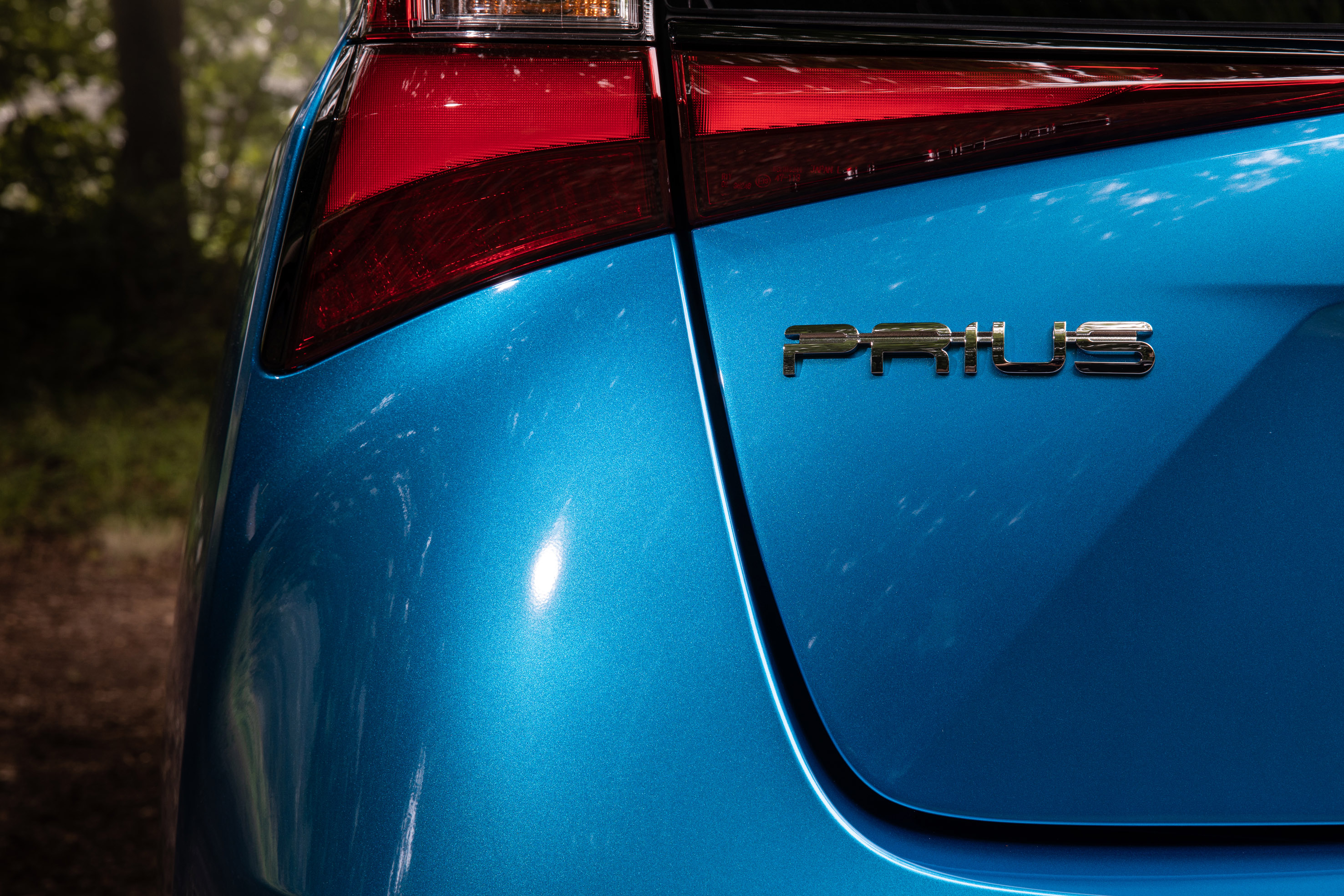
VERDICT
Prius never was an attractive car to look at but the fourth generation is a lot crisper in its design execution, the interior is more welcoming and tactile and Toyota has been very clever in taking baby steps when improving the technology over the past two decades – such as the latest use of those rear wheel motors.
For business drivers the everyday functionality of the Prius still makes it the one to have top of your shopping list.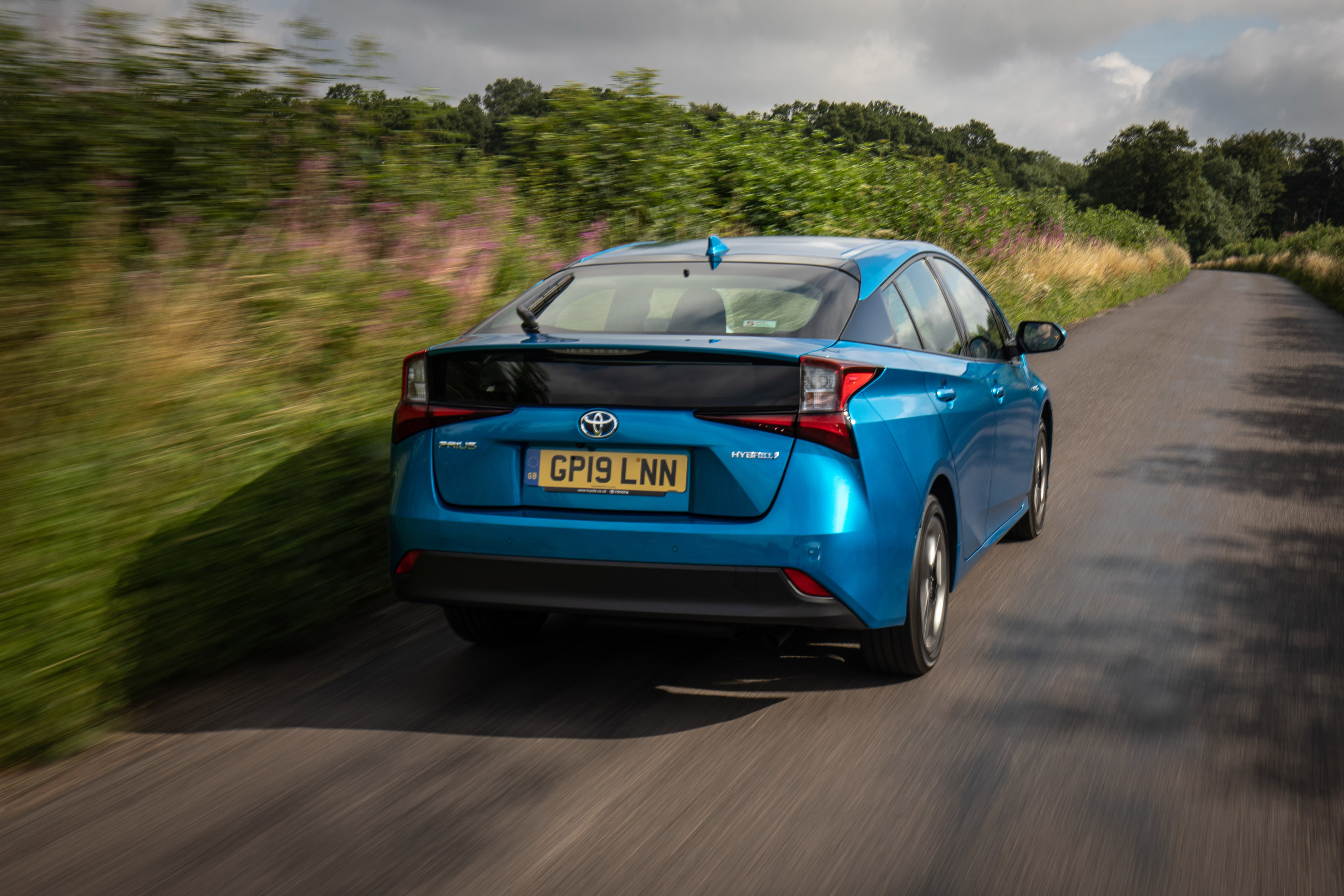
Wheels-Alive Tech Spec. in Brief:
Toyota Prius Business Edition+ AWD-i
Engine: 1,798cc four cylinder
Power: 97 bhp @ 5,200 rpm
Torque: 142 Nm (105 lb.ft) @ 3,600 rpm
Electric Motor:
Power: 71 bhp
Torque: 163 Nm (120 lb.ft)
Transmission: Electric CVT
Performance:
0–62 mph: 10.9 seconds
Top Speed: 99 mph
Fuel Consumption (Combined WLTP): 58.7 mpg – 64.7 mpg
CO2 Emissions: 85 g/km
Price (On the Road) £28,970